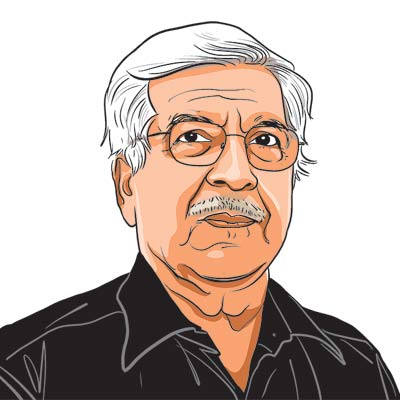Opinion The Russians were coming
In the late-eighties Prime Minister Rajiv Gandhi met Gorbachev & it was decided that Indo-Soviet trade would be doubled.
The PM will meet BRIC representatives,including the Russians,at the G8 meetings. We go down memory lane in the years of Perestroika. In the late-eighties Prime Minister Rajiv Gandhi met Gorbachev. In a somewhat spontaneous gesture it was decided that Indo-Soviet trade would be doubled. Back home I was asked to negotiate. I remonstrated since we were in liberalisation mode,our trade was being restructured and in fact,bilateral trade would go down.
It was decided that we would put Indo-Soviet trade on the reform mode since the Soviets were also restructuring. I was sent to Moscow. I knew Satyen Pitroda since I was a student at Penn and in fact,had attended his wedding in Chicago in the mid-sixties. He was building India’s communication network from scratch in his C Dot and I asked him if he would come with me since his Soviet experience would have been limited.
He agreed and was a hit with the Soviets with Gorbachev even asking him to build a rehabilitation network online when a massive earthquake hit them.
In Moscow we were to suggest to the Soviets to put Indo-Soviet trade on the fast track of reform and in fact,the rupee was one of the currencies they placed in the basket when they allowed free trade of a part of foreign exchange earnings in the free market mode and for some time there were two exchange rates for the Rupee and the Rouble. I asked our Mumbai-based financial institutions to work out arrangements with them and IDBI hosted them royally but we got to learn that their central banking and financial markets were weak.
In Moscow we were,of course,negotiating the items which were to carry on to the Russian post-Soviet Union period,the light water reactors and geo stationary technology,but also wanted an understanding of the reforms they were undertaking. Gorbachev had put together in Moscow his most talented men,largely in their mid-forties. They were technocrats,the man who was modernising the Siberian communication links and so on. My counterpart was an electronics engineer trained in the US. I am not sure but,I think,in one of the pictures taken in Leningrad a much-younger Putin is there with Pitroda and me.
When it was time to give the customary dinner and I was discussing it with Kaul Saheb,our Ambassador,it suddenly struck me that we could invite all of them. It wasn’t strictly in keeping with protocol but B K Chaturvedi,who was compeering our group and was Joint Secretary then,arranged it. They all came to the Ashoka Restaurant in Moscow and it was quite an event. I was to meet them again and again in Delhi and Moscow during return visits. I was to see the spirit sagging from these extraordinary men. Somehow the Soviets didn’t build the institutions to support these men who were chosen to spearhead their reform.
When the Rajiv Gandhi Government fell I resigned from the Planning Commission,since I felt that it was a political appointment although some take the view that it is a technocratic post. I was invited to work in the World Institute of Development Research (WIDER) at Helsinki,where I wrote my book on development planning and policy.
Jeffrey Sachs was working on Soviet reform there with a large grant the Finns had put up and I was asked if I would help. I politely declined because I felt that the situation was too volatile and I was right.
I was again in Moscow just before the fall of the Soviet Union and bought a painting which the Herald Tribune had featured as a part of Glasnost since in the Arbat Street the Soviets allowed free art. It is a cherished possession since it carries the painter’s name,Arbat and the date August 1991. I was to go again in 1992 and see a very proud people suffer with the strength only a great civilisation can provide. They are out of it now and the older ones perhaps have a bit of a soft corner for the memories of their democratic Indian friends.





